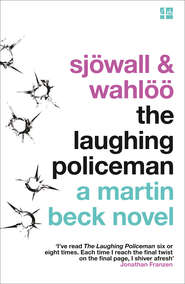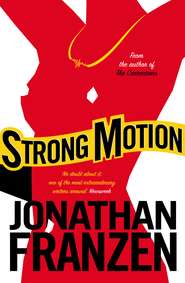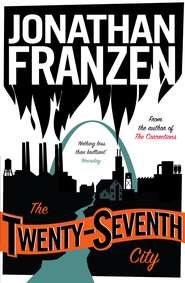По всем вопросам обращайтесь на: info@litportal.ru
(©) 2003-2024.
✖
The Corrections
Автор
Год написания книги
2018
Настройки чтения
Размер шрифта
Высота строк
Поля
“To do, uh, corporate PR for him. And for more than an hour now”—Eden glanced at her watch and let her eyes and mouth distend in exaggerated shock—“I’ve been trying to explain that the actors I work with are more interested in film and stage than in, say, international investment schemes. And tend, also, to have wildly inflated notions of their own literacy. And what I’m trying to explain to Gitanas is that you, Chip, not only have an excellent command of language and jargon, but you don’t have to pretend to be an investment expert. You are an investment expert.”
“I’m a part-time legal proofreader,” Chip said.
“An expert in the language. A gifted screenwriter.”
Chip and Gitanas traded glances. Something about Chip’s person, perhaps the shared physical traits, seemed to interest the Lithuanian. “Are you looking for work?” Gitanas said.
“Possibly.”
“Are you a drug addict?”
“No.”
“I’ve got to go to the bathroom,” Eden said. “April, honey, come along. Bring your drawings.”
April obediently hopped off the sofa and went to Eden.
“Bring your drawings, though, honey. Here.” Eden gathered up the ivory pages and led April to the door. “You men talk.”
Gitanas put a hand to his face and squeezed his round cheeks, scratched his blond stubble. He looked out the window.
“You’re in government,” Chip said.
Gitanas tilted his head. “Yes and no. I was for many years. But my party is kaput, I’m an entrepreneur now. Sort of a governmental entrepreneur, let’s say.”
One of April’s drawings had fallen to the floor between the window and the sofa. Chip extended a toe and pulled the page toward him.
“We have so many elections,” Gitanas said, “nobody reports them internationally anymore. We have three or four elections a year. Elections are our biggest industry. We have the highest annual per capita output of elections of any country in the world. Higher than Italy, even.”
April had drawn a portrait of a man with a regular body of sticks and blobs and oblongs, but for a head he had a black and blue snarled vortex, a ratty scrabble, a scribbled mess. Through the ivory bond, Chip could see faint blocks of dialogue and action on the other side.
“Do you believe in America?” Gitanas said.
“Jesus, where to begin,” Chip said.
“Your country which saved us also ruined us.”
With his toe Chip lifted one corner of April’s drawing and identified the words—
MONA
(cradling the revolver)
What’s wrong with being in love with myself? Why is that a problem?
—but the page had grown very heavy or his toe very weak. He let the page lie flat again. He pushed it underneath the sofa. His extremities had gone cool and a little bit numb. He couldn’t see well.
“Russia went bankrupt in August,” Gitanas said. “Maybe you heard? Unlike our elections, this was widely reported. This was economic news. This mattered to the investor. It also mattered to Lithuania. Our main trading partner now has crippling hard-currency debts and a worthless ruble. One guess which they use, dollars or rubles, to buy our hens’ eggs. And to buy our truck undercarriages from our truck-undercarriage plant, which is the one good plant we have: well, it would be rubles. But the rest of the truck is made in Volgograd, and that plant closed. So we can’t even get rubles.”
Chip was having trouble feeling disappointed about “The Academy Purple.” Never to look at the script again, never to show it to a soul: this might be a relief even greater than his relief in the men’s room of Fanelli’s where he’d taken the salmon from his pants.
From an enchantment of breasts and hyphens and one-inch margins he felt himself awakening to a rich and varied world to which he’d been dead for who knew how long. Years.
“I’m interested in what you’re telling me,” he told Gitanas.
“It’s interesting. It is interesting,” Gitanas agreed, still hugging himself tensely. “Brodsky said, ‘Fresh fish always smells, frozen smells only when it thaws.’ So, and after the big thaw, when all the little fish came out of the freezer, we were passionate about this and that. I was part of it. Very much part of it. But the economy was mismanaged. I had my fun in New York, but back home—there was a depression, all right. Then, too late, 1995, we pegged the litas to the dollar and started privatizing, way too fast. It wasn’t my decision, but I might have done the same. The World Bank had money that we wanted, and the World Bank said privatize. So OK, we sold the port. We sold the airline, sold the phone system. The highest bidder was usually American, sometimes Western European. This wasn’t supposed to happen, but it did. Nobody in Vilnius had cash. And the phone company said, OK, we’ll have foreign owners with deep pockets, but the port and the airline will still be a hundred percent Lithuanian. Well, the port and the airline were thinking the same. But still it was OK. Capital was flowing, better cuts of meat at the butcher, fewer brownouts. Even the weather seemed milder. Mostly criminals took the hard currency, but that’s post-Soviet reality. After the thaw, you get the rot. Brodsky didn’t live to see that. So OK, but then all the world economies started collapsing, Thailand, Brazil, Korea, and this was a problem, because all the capital ran home to the U.S. We found out, for example, that our national airline was sixty-four percent owned by the Quad Cities Fund. Which is? A no-load growth fund managed by a young guy named Dale Meyers. You never heard of Dale Meyers, but every adult citizen of Lithuania knows his name.”
This tale of failure seemed to amuse Gitanas greatly. It had been a long time since Chip had had such a powerful sensation of liking somebody. His queer friends at D—— College and the Warren Street Journal were so frank and headlong in their confidences that they foreclosed actual closeness, and his responses to straight men had long fallen into one of two categories: fear and resentment of the successes, flight from the contagion of the failures. But something in Gitanas’s tone appealed to him.
“Dale Meyers lives in eastern Iowa,” Gitanas said. “Dale Meyers has two assistants, a big computer, and a three-billion-dollar portfolio. Dale Meyers says he didn’t mean to acquire a controlling stake in our national airline. Dale says it was program trading. He says one of his assistants misentered data that caused the computer to keep increasing its position in Lithuanian Airlines without reporting the overall size of the accumulated stake. OK, Dale apologizes to all Lithuanians for the oversight. Dale says he understands the importance of an airline to a country’s economy and self-esteem. But because of the crisis in Russia and the Baltics, nobody wants tickets on Lithuanian Airlines. So, and American investors are pulling money out of Quad Cities. Dale’s only way to meet his obligations is liquidate Lithuanian Airlines’ biggest asset. Which is its fleet. He’s gonna sell three YAK40s to a Miami-based air freight company. He’s gonna sell six Aerospatiale turboprops to a start-up commuter airline in Nova Scotia. In fact, he already did that, yesterday. So, whoops, no airline.”
“Ouch,” Chip said.
Gitanas nodded fiercely. “Yeah! Yeah! Ouch! Too bad you can’t fly a truck undercarriage! OK, and then. Then an American conglomerate called Orfic Midland liquidates the Port of Kaunas. Again, overnight. Whoops! Ouch! And then sixty percent of the Bank of Lithuania gets eaten up by a suburban bank in Atlanta, Georgia. And your suburban bank then liquidates our bank’s hard-currency reserves. Your bank doubles our country’s commercial interest rates overnight—why? To cover heavy losses in its failed line of Dilbert affinity MasterCards. Ouch! Ouch! But interesting, huh? Lithuania’s not being such a successful player, is it? Lithuania really fucked things up!”
“How are you men doing?” Eden said, returning to her office with April in tow. “Maybe you want to use the conference room?”
Gitanas put a briefcase on his lap and opened it. “I’m explaining to Cheep my gripe with America.”
“April, sweetie, sit down here,” Eden said. She had a big pad of newsprint which she opened on the floor near the door. “This is better paper for you. You can make big pictures now. Like me. Like Mommy. Make a big picture.”
April crouched in the middle of the newsprint pad and drew a green circle around herself.
“We’ve petitioned the IMF and World Bank for assistance,” Gitanas said. “Since they encouraged us to privatize, maybe they’re interested in the fact that our privatized nation-state is now a zone of semi-anarchy, criminal warlords, and subsistence farming? Unfortunately, IMF is handling complaints of bankrupt client states in order of the size of their respective GDPs. Lithuania was twenty-six on the list last Monday. Now we’re twenty-eight. Paraguay just beat us. Always Paraguay.”
“Ouch,” Chip said.
“Paraguay being for some reason the bane of my existence.”
“Gitanas, I told you, Chip is perfect,” Eden said. “But listen—”
“IMF says expect delays of up to thirty-six months before any rescue can begin!”
Eden slumped into her chair. “Do you think we can wrap this up fairly soon?”
Gitanas showed Chip a printout from his briefcase. “You see, here, this Web page? ‘A service of the U.S. Department of State, Bureau of European and Canadian Affairs.’ It says: Lithuanian economy severely depressed, unemployment nearly twenty percent, electricity and running water intermittent in Vilnius, scarce elsewhere. What kind of businessman is going to put money in a country like that?”
“A Lithuanian businessman?” Chip said.
“Yes, funny.” Gitanas gave him an appreciative look. “But what if I need something different on this Web page and others like it? What if I need to erase what’s here and put, in good American English, that our country escaped the Russian financial plague? Like, say, Lithuania now has an annual inflation rate less than six percent, per capita dollar reserves same as Germany, and a trade surplus of nearly one hundred million dollars, due to continued strong demand for Lithuania’s natural resources!”
“Chip, you’d be perfect for this,” Eden said.
Chip had quietly and firmly resolved never to look at Eden or say a word to her again for as long as he lived.
“What are Lithuania’s natural resources?” he asked Gitanas.
“Chiefly sand and gravel,” Gitanas said.
















